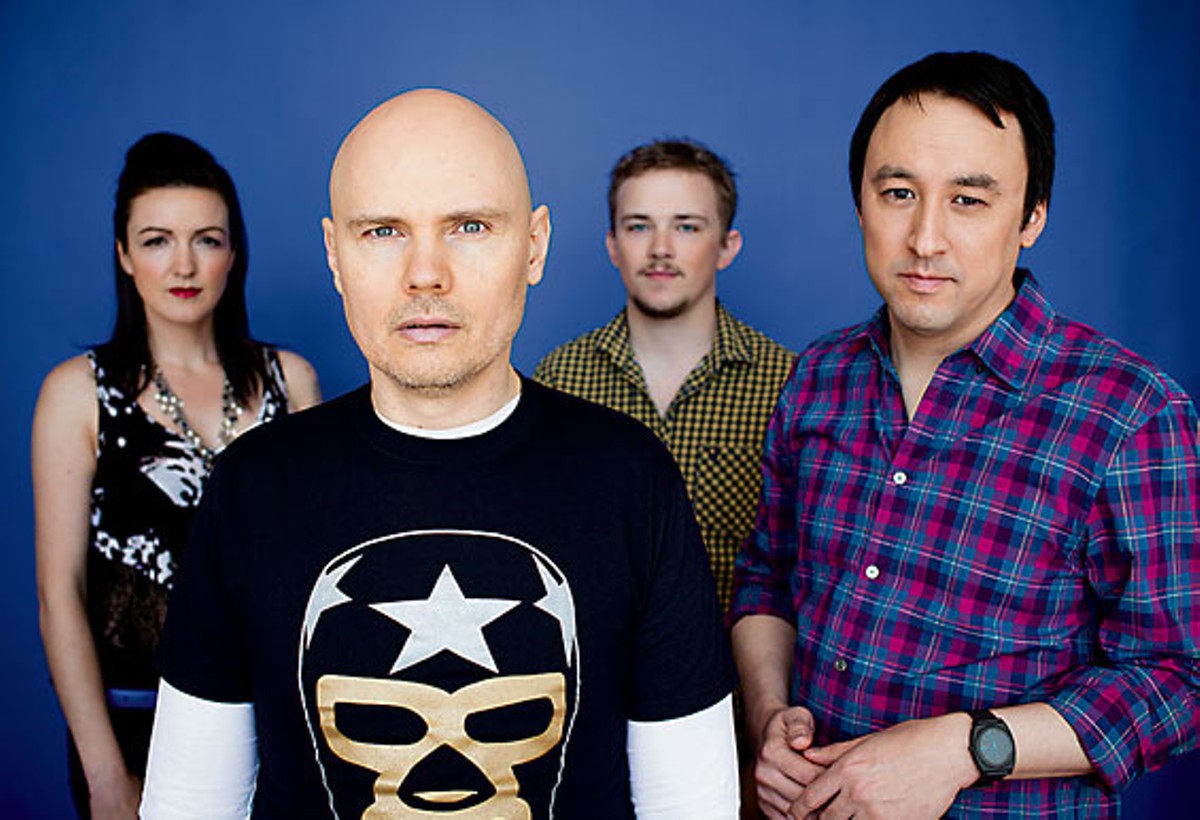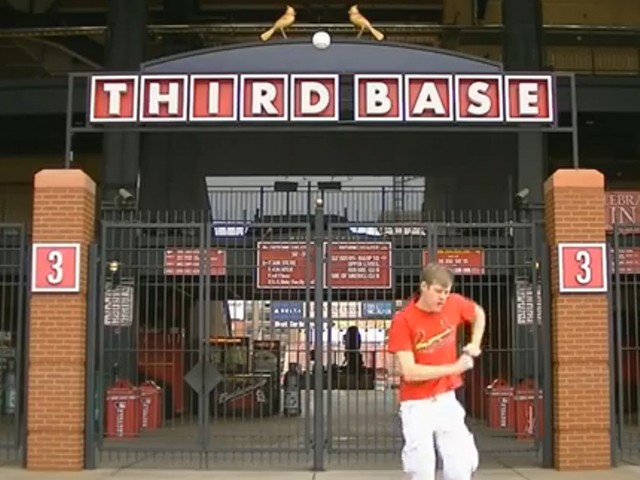"To destroy is always the first step in any creation," wrote e.e. cummings. For Smashing Pumpkins frontman Billy Corgan, destruction and creation are a way of life.
"A good artist is willing to die many times over," Corgan says during our recent phone interview. "What's funny is, I've died so many times."
Each "death," however, has ignited a rebirth. From 1988 to 2000, Corgan manned one of alternative rock's reigning bands — one that endured years-long obstacles like emotional dysfunction, personal conflict, drug addiction and even actual death.
Still, a laundry list of obstacles couldn't keep Corgan from pursuing the band he still adores, as we've witnessed in the six years since he's regrouped the Smashing Pumpkins with a new lineup. Only Corgan himself can describe his personal ups and downs through it all — the destruction and resulting creation.
"I've had the rise and the fall, and these years since then have been a clusterfuck."
Corgan is now the group's only remaining original member. Though it seems, these days, Corgan is growing used to that isolation.
The lead Pumpkin was home alone on a Saturday afternoon when he talked to us from his home in the wealthy Chicago suburb of Highland Park. He was wordy and well spoken; most notably, however, he was open — there was no topic we couldn't broach. The conversation's only pauses were brief moments when he tossed toys to his cats.
"Sometimes," Corgan says, "I'll interview with a journalist who's obviously just not a fan, and they just look at me, like, 'Wow, you're still fucking here!' No one's quite sure what we are anymore, or why we're still here — but we are — and we're still headlining festivals and kicking ass."
Nowadays, the "we" Corgan refers to is his new band: guitarist Jeff Schroeder, bassist Nicole Fiorentino and drummer Mike Byrne. This year, the group released Oceania, the follow-up album to 2007's Zeitgeist.
Oceania is, according to Corgan, an album of "isolation and love," two ruling themes of his life.
And while the album has been much better received than 2007's Zeitgeist, it still lacks the luster of what Corgan describes as those "Siamese Dream-sounding songs," which, he says, he isn't interested in rewriting.
"Those songs came from an organic feeling, from the drugs I was doing in that moment, whatever. But once that's done, it's gone. It's like trying to recreate a fuck," he says. "It's still pretty good, but it's not going to be as good."
He likens himself to befuddling '70s comic Andy Kaufman. "I remember being a kid in the '70s and watching Kaufman do that conga routine on Saturday Night Live. But I'd be bummed out because I wanted him to do Mighty Mouse! So I know that feeling. Like, everyone asks me, 'Can't you go back to being the screaming, angry guy?'"
But Corgan's simply not interested. Siamese Dream was released nearly two decades ago; it seems impractical to expect a songwriter such as him to remain stagnant in his craft. Still, those hypercritical comparisons trudge on —but Corgan hasn't let the criticism affect his self-perception over time.
"When you're riding the wave of a cultural Zeitgeist and you're on MTV every five seconds," he says, referring to '90s-era power-Pumpkins, "it's a lot easier to get your dick hard about stuff. People try to put me in this box of, 'You were powerful, but now you're not.' As far as I'm concerned, I've been powerful all along."
And although Corgan is often lauded as one of rock's savviest businessmen, his personal definition of power has nothing to do with money, record sales or public perception.
"Any spiritual life practice — guru, Jesus, Buddha, whoever — tells you that true power has nothing to do with material power. It has everything to do with passion and consistency — those are the hallmarks I've set my eyes on in my life."
"Consistency" might not come to mind when looking at the big picture: the band's messy breakup, hit-and-miss reunion and subsequent lineup shuffle. But Corgan has endured it all, the ups and downs and destroyed relationships, for one sole purpose — to continue living his life with passion, in the best way he knows: through music.
"To re-embrace what I once loved about my work has been a warming process for me," he says of Oceania. "Because it's a good, earned feeling now. The difference with Oceania is, I've found harmony again — and when [band members] actually like each other, it translates to the music."
The praising of his current bandmates is quite the contrast to the roller coaster of bitter emotion Corgan expresses when our conversation shifts to the people they have replaced in the Pumpkins.
"My relations with the old band are so piss-poor," he says. "But the issues of a band are so complex — they're politically, socially and financially involved. Like, what am I supposed to say when Jimmy leaves the band and immediately writes a blog saying he won't play for money again? You're talking about the drummer who OD'ed three times, you know?"
The topic clearly opened a Pandora's box full of lingering resentment and pain.
"There's no way to properly convey what it was like to be in that band," Corgan says. "And the fucked-up stuff is ten times more fucked up than what the world even knows — but that's the mystery and magic of the band. How could we have these incredible acts of betrayal happening, yet turn around and be able to surmount this impossible mountain and, for a brief time, stand there unchallenged?
"Then, of course," he adds, "implode in our own hubris and greed. But that's what makes it a fascinating tale."
Though he's quick to drop his gloves when dissing his former bandmates, Corgan can't mask the deep bond they once shared.
"I was in love with the Smashing Pumpkins," he says, wistfully. "I really believed in what we were doing. But I idealized the band [members], which, of course, overlooked their incredibly flawed human personas, and which now bites me in the ass, as they rear their heads for lawsuits."
He goes from longing to bitter resentment in just a few seconds — a trend as he speaks of the former group he once so loved.
As our conversation wraps, Corgan becomes reflective. A guy known for his tough talk, he suddenly seems defenseless and reflective, filled with the memories of great success and the greater demise of the longest and most intense love affair of his life —his band.
"It's been a long, weird journey," he says. "If somebody would have told me fifteen years ago that at 45 I'd be living in a big house with two dogs and two cats, with no wife and no girlfriend, I wouldn't have believed them. My life did not turn out the way I'd planned it. Not even close."
This rare glimpse of Corgan so exposed, so unequivocally human, makes Oceania's themes of isolation and love seem perfectly true.
But ultimately Billy Corgan's story is no tragedy. "Being healthy, humbled by God, musically engaged and surrounded by good people — those are the moments I'm OK with, because maybe this was the way it was meant to be all along."






